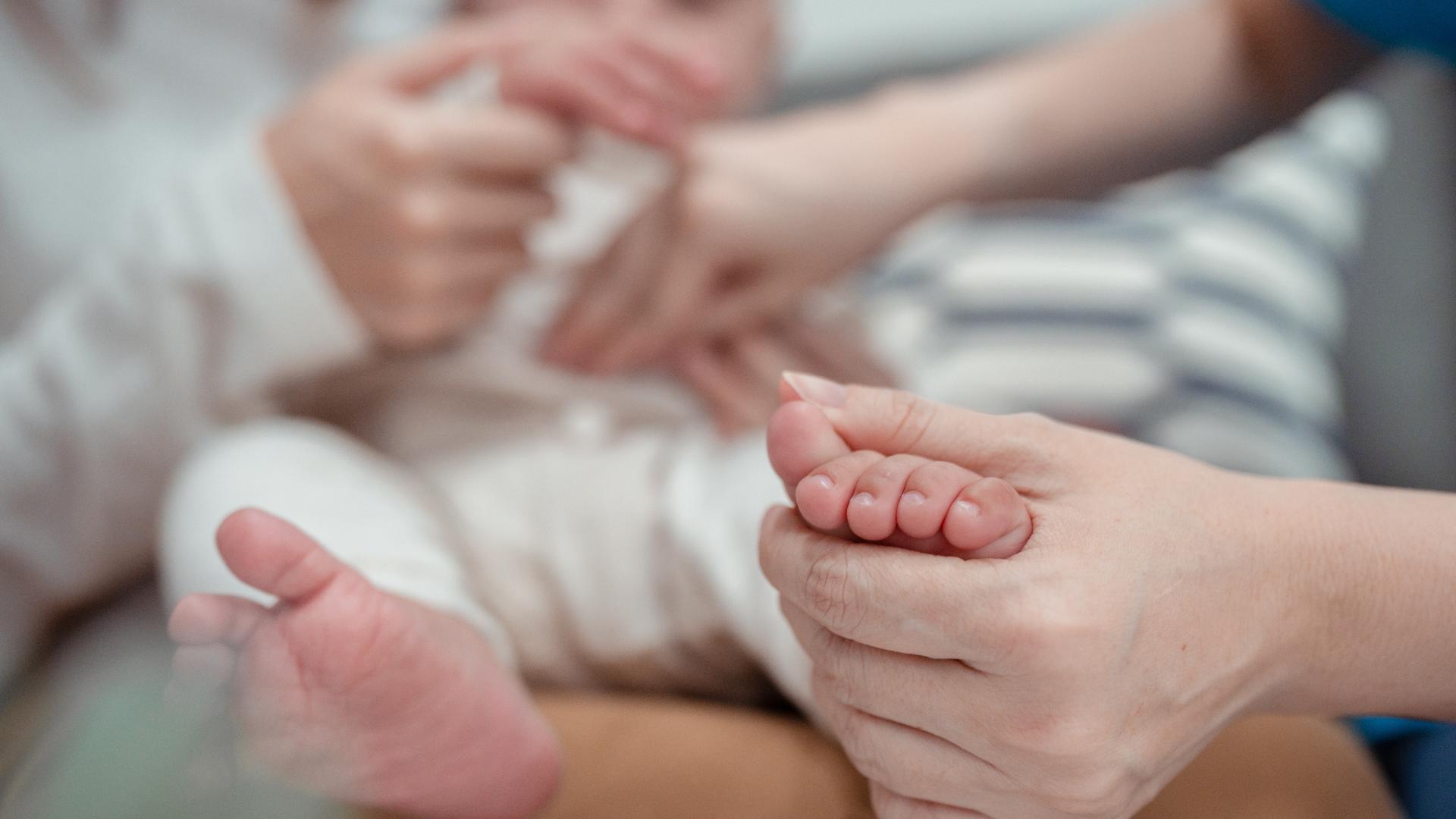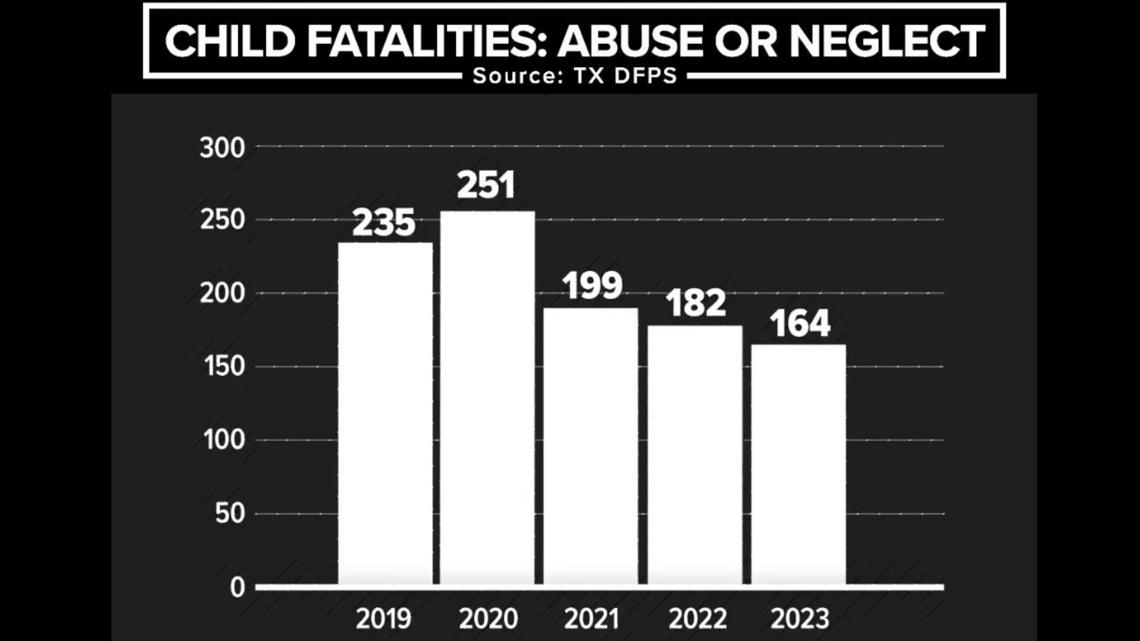How Georgia could learn from Texas, other states when it comes to child abuse diagnoses
11Alive Investigates went to Texas to learn how the state changed its law and is implementing the practice of second opinions.

There are states where lawmakers, tired of hearing the stories of families torn apart by allegations of abuse, have put in more checks and balances to ensure due process.
In 2021, Texas passed SB 1578 - a bill that gives parents, accused of abusing their child, the right to a second opinion if they insist a medical condition is to blame for the injuries.
“All of us want to protect kids who are truly abused, and I think the families that are falsely accused, they're the first to admit they understand completely that an investigation was needed,” explained Holly Simonton, a parent who lobbied for the legislation. “We are wanting due process. We're wanting better checks and balances. And the truth should always be the most important goal here for everybody.”
Holly and her husband, Brendan, learned how quickly an accusation could spiral when they took their son Hudson to the hospital with a bump on his chest.
“And literally within minutes of meeting me, there were basically outright accusations to my face that somehow I had caused this bump,” recalled Holly. “It was just spinning out of control. There was no truth in anything.”
Speaking before lawmakers, she testified, “This incident has broken our trust in the healthcare system.”
The Simontons knew they had to say something because they had seen the power of a second opinion.
“Our pediatrician said, looked, over Hudson. He was fine. And she's like, 'We're not putting him through all that invasive abuse workup,'” said Holly. “She was so fired up, and it meant the world to me because without her, I don’t know where we would be.”
Because of that advocacy, their family never lost custody and child welfare never opened an investigation.
But other parents told lawmakers they weren’t so lucky.
'Lack of process changes'
“The child abuse pediatrician in our case never accepted our daughter’s diagnosis and even went so far as to use our family’s case as an example of abuse at a national conference,” said one mother during legislative hearing in Texas.
“Our judge would tell us it didn’t matter what we said. That he would only listen to the child abuse doctors,” said another, adding she had lost custody of her son for two years, missing his first birthday and all the milestones that come with it.
It was that kind of testimony that helped win legislative allies like Rep. James Frank, the chair of Texas’ Human Services Committee.
Frank said lawmakers raised concerns with hospitals and child abuse pediatricians, CAPs, more than a year before the March committee meeting that drew harsh words from parents.
When Frank asked one of the CAPs in attendance what new policies or changes had been implemented to address these concerns, she had nothing to add. The doctor did testify that CAPs have a peer review process to double-check each other’s work, but critics argue that just reinforces the same closed loop of diagnoses bias.
When Frank asked a spokesperson for one of the leading children’s hospitals if it had made any changes, she also had nothing to report, stating that any concerns with a doctor could be reported to hospital administration or the medical board.
“I am incredibly disappointed by the lack of process changes within the child abuse, the children’s hospital in this case. I’ve said this and I’m sure you’ll find it terribly offensive, I don’t have any kids that young anymore, but unless their life depended on it I would not take them to one of these places because of the fishing expeditions that go on,” responded Frank.
“Until the internal processes and some of the arrogance changes, that would be my recommendation,” he said adding that legislation can help, but to truly fix the problem hospitals need a culture change.
An opinion - not the only opinion
According to the American Academy of Pediatrics, which certifies CAPs, Texas has 23.
Frank believes the state should reconsider their role.
“When you have reason to think there's abuse, then they can often see the detail that will tell you whether or not it is,” said Frank. “There's a big difference between calling CPS (Child Protective Services) and saying, look, we're seeing some things that are unusual here. You probably ought to check versus calling CPS and saying, I have found child abuse and in some cases, and I know which parents doing it.”
Frank said Texas has tried to train caseworkers within the state’s child welfare agency to use a CAP’s information as ‘an’ opinion – not the ‘only’ opinion. But he knows that’s hard when agency turnover leaves young case workers to make pretty serious decisions.
More than Georgia, more than a law
Almost three years after Texas passed its law, Holly said it’s clear: the words aren't enough. It needs accountability.
“A lot of parents don't even know they have the right to a second medical opinion. CPS isn't going to tell them that, and the child abuse pediatricians aren't going to tell them that. So, parents don't know they have that right,” she explained.
Holly hopes in the next legislative session, Texas lawmakers will find a way to make the intent of the law clear and enforce it.
“I think you've seen in Georgia and certainly we have seen here, there's plenty of times where they have created harm out of thin air when it just didn't need to be done,” Frank said.
Illinois is having similar discussions.
Proposed legislation in Illinois mandates child abuse pediatricians identify themselves and their role when talking with parents and orders hospitals to provide parents with their child’s complete medical record so they can get a second opinion. As with Texas, those speaking out against the measure are primarily doctors and hospital staff.
Frank said the biggest fear for lawmakers is the risk of getting it wrong and leaving a child in danger. He takes comfort that even though the number of children in the state continues to increase, child fatalities due to abuse and neglect have dropped.
In 2019, according to the Texas Department of Family and Protective Services, 235 children died due to abuse or neglect. In 2023, that number was 164.


But the Texas Department of Family and Protective Services said last year, 38 children almost died due to abusive head trauma, also called shaken baby syndrome. That number would include some of the families who said they’re innocent, fighting to prove their child’s injury was really connected to a bleeding disorder, trauma at birth, or seizure.
Holly said that after her experience, she created a Facebook group that allows families from across the world to share their stories. She asks them to send medical records and other supporting documents before posting their information.
“I don’t know how anybody can look away from this, from what these families are going through,” said Holly.
An opinion's repercussions
Because she reviews cases from across the country, Holly can see some of the trends in how communities react to the allegations. She said based off the cases she is aware of, parents in Georgia seem to face criminal charges, along with their juvenile case, more than any other state.
“The problem is when the families get tied up in the criminal side of things the costs go up astronomically, the legal fees and the bond restrictions,” Holly said, “and it wears these families down to where it feels like they’re just trying to see how far they can get these families to just lose hope and just give up really.”
Dr. Michael Laposata, a pathologist who has been willing to speak up for families he believes are innocent of abuse allegations says this topic also needs to be discussed in law school.
"I would love to give this lecture, which I've given to people in medicine... to give them an idea that you have understand the many possible explanations," said Laposata who works as the Professor and Chair of the Department of Pathology at the University of Texas Medical Branch.
Holly and her husband still get a bit nervous any time their boys get injured. When Hudson broke his collarbone after his birthday party, her first thought was, "Thank God there are witnesses around.”
But they were still nervous about going to the hospital because once the word 'abuse' is put in a medical record it stays there. Even if the allegations were later dismissed.
“Which hospital do we go to? We stopped in the parking lot and thought, 'Are we putting our child in more danger by bringing them into this hospital?'” Holly explained.
Holly admits, working with families fighting for custody and against criminal charges often leaves her with survivor’s guilt.
“I had a pediatrician who would fight for me. I had the ability to hire an attorney - and, a lot of families don't have that," she said. "I just hope that more people will care about it. I don’t know how to make more people care. We need the unaffected to come alongside those of us who have been through it."
11Alive Investigator Rebecca Lindstrom has been looking into the Help That Harms. Follow her investigation on demand via our streaming app 11Alive+ Available on Roku, Apple TV and Amazon Fire TV.

